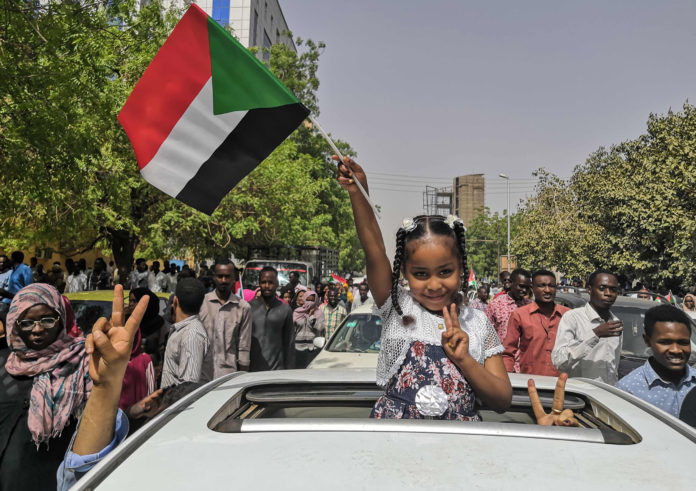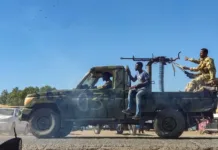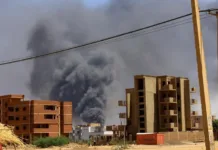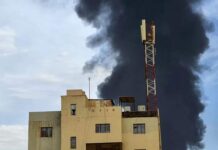
Large crowds have remained on the streets of Sudan’s capital, Khartoum, through the night, ignoring a curfew declared by the military.
Long-time President Omar al-Bashir was overthrown and arrested on Thursday after months of street protests.
But demonstrators say the military council which has taken power is part of the same regime.
The fresh stand-off has raised fears of a violent confrontation between protesters and the army.
There is also a real danger that different elements of the security forces and militia could turn their guns on each other, says BBC World Service Africa editor Will Ross.
The UN and the African Union have both called for calm.
Sudan is due to reopen its airspace on Friday, following a 24-hour suspension, but land and maritime borders will remain closed, the military council has said.
The curfew, in force from 22:00 local time (20:00 GMT) to 04:00, was declared for the “safety” of citizens, state media said.
The armed forces and the security council would carry out their “duty to uphold peace and security and protect citizens’ livelihoods”, it said.
What are the protesters saying?
A mood of celebration on the streets of Khartoum, which followed news of Mr Bashir’s arrest, evaporated when organisers called for a mass sit-in outside military headquarters to continue.
“This is a continuation of the same regime,” said Sara Abdeljalil of the Sudanese Professionals’ Association (SPA). “So what we need to do is to continue the fight and the peaceful resistance.”
An SPA statement said that “those who destroyed the country and killed the people are seeking to steal every drop of blood and sweat that the Sudanese people poured in their revolution that shook the throne of tyranny”.
The SPA has previously said that any transitional administration must not include anyone from the “tyrannical regime”.
Crowds waved flags and chanted “Fall, again!” – refashioning their previous anti-Bashir slogan of “Fall, that’s all!”.
How did the coup unfold?
Early on Thursday, military vehicles entered the large compound in Khartoum housing the defence ministry, the army headquarters and Mr Bashir’s personal residence.
State TV and radio interrupted programming and Defence Minister Awad Ibn Ouf announced “the toppling of the regime”. He said Mr Bashir was being held “in a secure place” but did not give details.
Mr Ibn Ouf said the country had been suffering from “poor management, corruption, and an absence of justice” and he apologised “for the killing and violence that took place”.
He said the army would oversee a two-year transitional period followed by elections.
The minister also said a three-month state of emergency was being put in place, with the constitution suspended.
Who is the military council’s leader?
Before the coup, Mr Ibn Ouf was Mr Bashir’s first vice-president and defence minister.
He has also served as army commander and military intelligence chief.
He is one of a group of officials subject to US sanctions from 2007 over support for the Janjaweed militia which was blamed for mass killings in the western Sudanese region of Darfur.
Source: BBC




